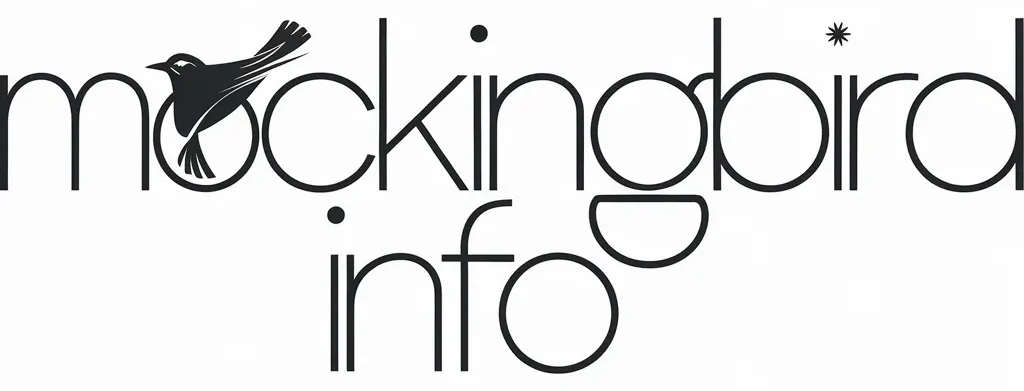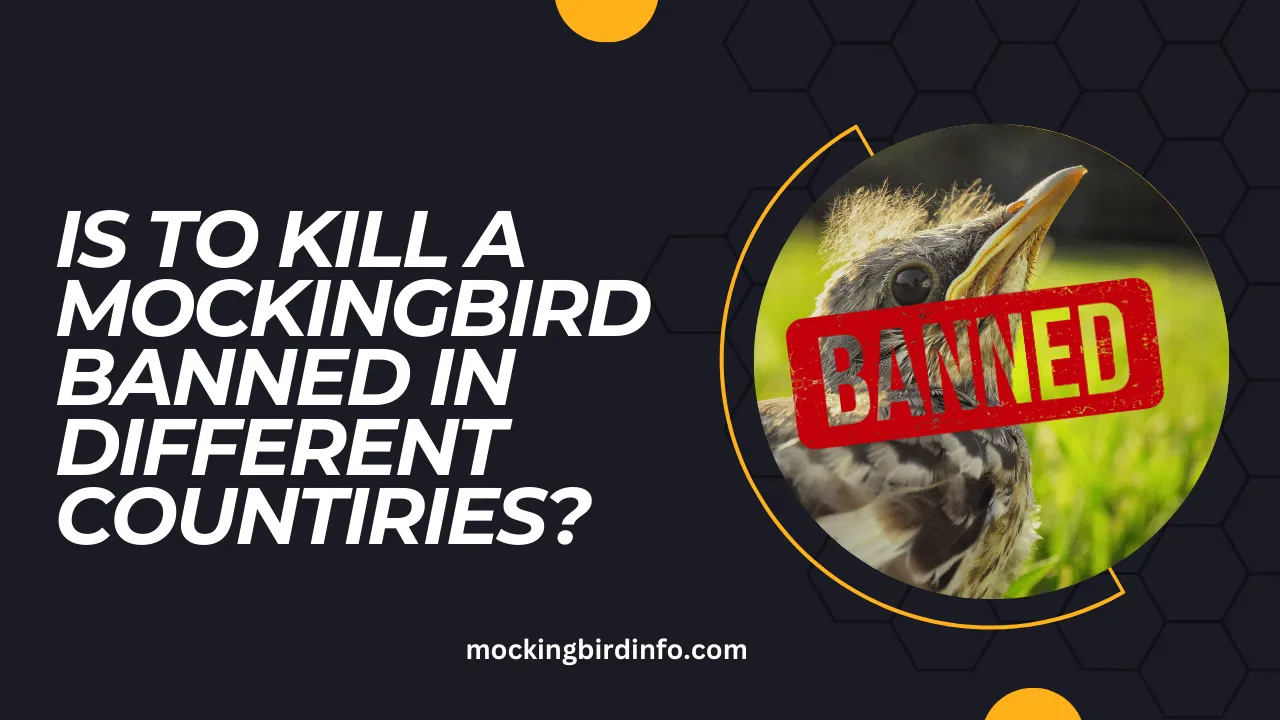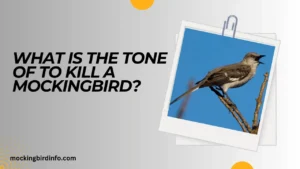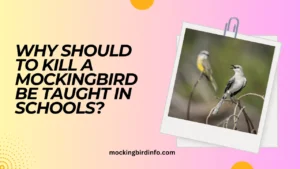The controversy surrounding To Kill a Mockingbird has ignited passionate debates for decades. What was once a staple in American classrooms and a symbol of literature’s power to spark change, has found itself caught in a storm of censorship.
Its raw portrayal of racial injustice, violence, and uncomfortable societal realities has made it both a beloved classic and a target for book bans. So, why is a book that challenges readers to confront the darkest parts of human nature so fiercely opposed?
At its heart, the controversy surrounding To Kill a Mockingbird stems from its unflinching examination of racism, violence, and morality. It presents uncomfortable truths, holding up a mirror to society’s flaws.
For some, this makes the novel an essential educational tool that fosters critical thinking and empathy. For others, it’s too disruptive, too unsettling, and in some cases, too inappropriate for young audiences.
The delicate balance between fostering discussion and protecting children from disturbing content has placed the book at the center of ongoing debates about what should and shouldn’t be allowed in schools.
In this article, we will explore the reasons behind the challenges faced by To Kill a Mockingbird in various countries and the implications of these challenges on education and intellectual freedom.
From its portrayal of racial inequality to its portrayal of violence and sexual assault, we will examine how this novel remains a lightning rod for controversy worldwide. Through specific case studies, we will look at the diverse challenges faced by the book in different regions and the broader conversation it sparks about censorship and the role of literature in education.
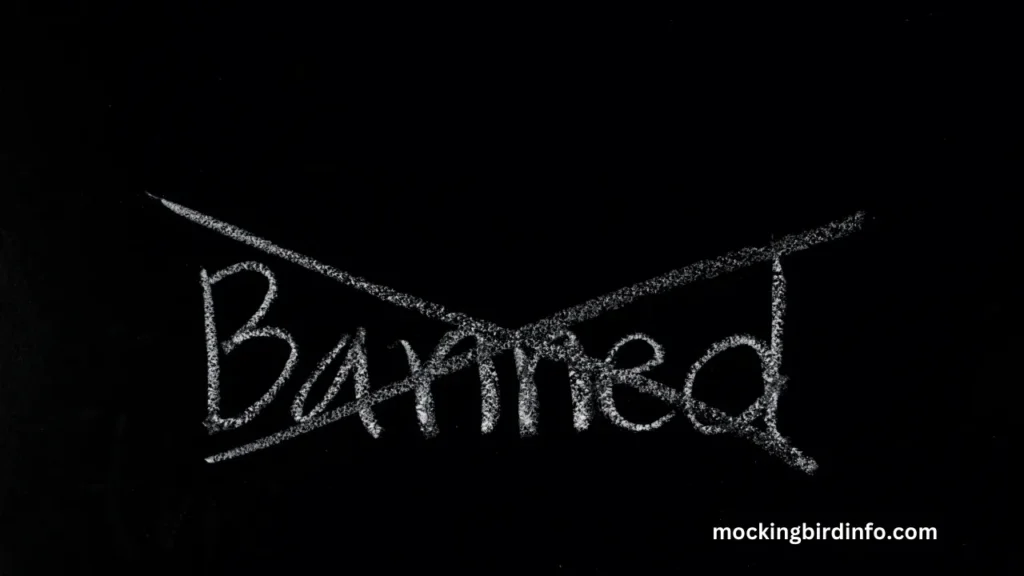
Contents
- 1 Reasons for Challenges
- 2 Case Studies of Challenges
- 3 Conclusion
- 4 FAQs
- 4.1 1. Why is To Kill a Mockingbird banned in some schools?
- 4.2 2. Is To Kill a Mockingbird still required reading in schools?
- 4.3 3. What countries have banned To Kill a Mockingbird?
- 4.4 4. What are the main themes of To Kill a Mockingbird?
- 4.5 5. What impact has banning the book had on education?
- 4.6 6. Why do some consider the book culturally insensitive?
Reasons for Challenges
Racial Themes: One of the most significant reasons To Kill a Mockingbird faces opposition is its candid portrayal of racial injustice. The book, set during the 1930s in the southern United States, brings to light the harsh realities of racism, particularly through the trial of Tom Robinson, an African American falsely accused of raping a white woman.
For many, the novel’s portrayal of these deep-seated racial tensions makes it an invaluable resource for discussing the history of racial inequality. However, some communities find these themes too disturbing, questioning whether it is appropriate to introduce such a complex, uncomfortable subject matter to children and teenagers.
Mature Language and Themes: The novel also contains mature language and discusses heavy themes such as sexual assault and violence. The character of Mayella Ewell, who falsely accuses Robinson of rape, is involved in a storyline that touches on sexual violence, a sensitive and difficult topic.
This aspect of the story leads some parents, educators, and school boards to argue that the book is not suitable for young readers. In addition, there are instances of explicit language in the text, which some consider offensive and inappropriate for children, fueling the objections from those advocating for its removal.
Cultural Sensitivity: To Kill a Mockingbird is also challenged due to its representation of African American characters and Southern culture. Critics argue that while the book critiques racial injustice, it does so within a framework that sometimes relies on stereotypical portrayals.
For example, the character of Calpurnia, the Finch family’s African American housekeeper, has been viewed by some as a “mammy” figure, a traditional, subservient archetype of African American women. These critics believe that the book could have done more to provide a deeper, more nuanced portrayal of African Americans, rather than relying on cultural tropes of the time.
Impact of Challenges
Educational Implications: The banning or challenging of To Kill a Mockingbird in schools poses significant educational implications. The book is often used to teach critical thinking, empathy, and history, especially in relation to the American Civil Rights Movement.
Removing such works from reading lists not only deprives students of a valuable learning experience but also limits their ability to engage with complex, real-world issues. By removing books that challenge readers to think deeply, education becomes less about expanding knowledge and more about preserving comfort.
This trend of removing controversial works threatens the core purpose of education, which should be to encourage critical engagement with society’s toughest issues.
Censorship and Intellectual Freedom: The widespread removal of To Kill a Mockingbird speaks to a larger issue of censorship in modern society. Censorship, particularly in educational settings, can undermine intellectual freedom, which is essential to democratic societies.
The act of banning books is often justified by the need to protect students from what some deem inappropriate content. However, such actions can also suppress the intellectual curiosity of students, denying them the opportunity to think critically and form their own opinions about challenging topics.
Defenders of intellectual freedom argue that literature should be a space where ideas—both comfortable and uncomfortable—can be explored.
Public Discourse and Social Change: The challenges to To Kill a Mockingbird have sparked important public discourse about race, justice, and social responsibility. The book provides a platform to discuss not just the history of racial prejudice but also its enduring legacy in today’s world.
By banning or challenging the book, societies risk ignoring or silencing these vital conversations. On the other hand, engaging with literature like To Kill a Mockingbird can promote greater social change by fostering a deeper understanding of social issues.
The debates around the book often serve as a catalyst for important discussions about how far society has come—and how much further it still needs to go in terms of racial equality and justice.
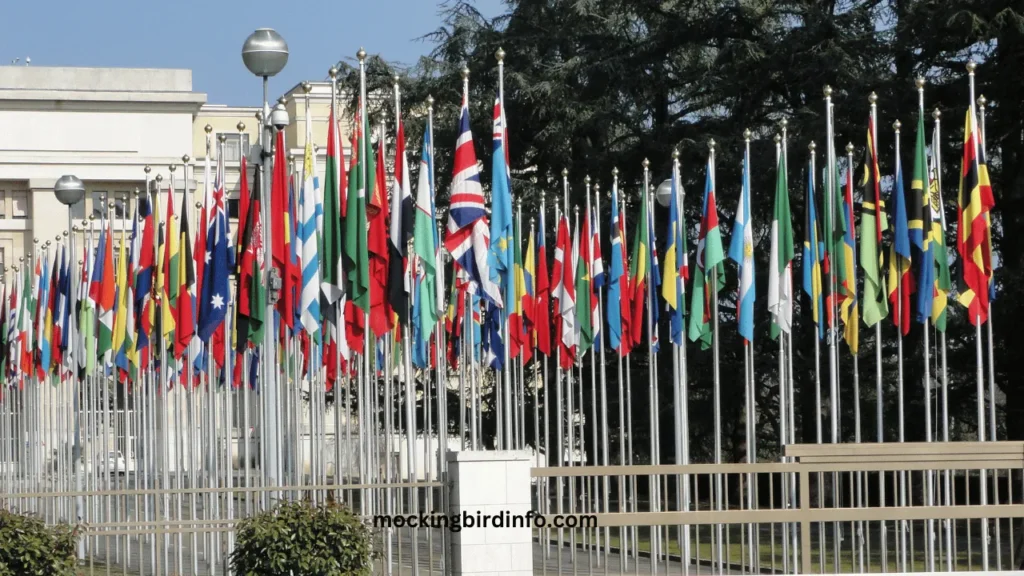
Case Studies of Challenges
United States: In the United States, To Kill a Mockingbird has faced challenges in numerous states and school districts, often due to its portrayal of racial themes and the use of offensive language.
The book has been banned in communities across the South, including the states of Mississippi, Texas, and Alabama. One of the earliest challenges came in 1966 when a Mississippi school district removed the book for its use of language considered offensive, especially the N-word.
More recently, the book has been challenged by parents and activists who object to its depiction of racial prejudice, violence, and themes of sexual assault. Legal battles have occurred in various states, where some parents have tried to prevent the novel from being taught in classrooms, arguing that it is inappropriate for students.
Other Countries: Outside of the United States, To Kill a Mockingbird has been challenged in countries like the United Kingdom and South Africa, where its content has been questioned for different reasons.
In the United Kingdom, concerns over its treatment of racial issues and its use of derogatory language have led to some schools reconsidering its inclusion in the curriculum. In South Africa, the novel faced opposition during the apartheid era, with critics viewing it as an inflammatory work due to its discussion of race relations and justice.
Despite these challenges, To Kill a Mockingbird has found its way into the hearts and minds of readers around the world, continuing to provoke thought about racial inequality and justice.
Conclusion
Recap Key Points: The banning and challenges faced by To Kill a Mockingbird underscore the continued discomfort that many people feel when confronting issues of race, violence, and moral complexity.
The novel’s treatment of these subjects has led to calls for its removal from schools, particularly because of its racial themes and mature content. However, the book’s ability to challenge readers and stimulate important discussions about justice, equality, and empathy remains a cornerstone of its value as a literary work.
Implications for the Future: The ongoing debate about book banning highlights the fragility of intellectual freedom in the modern age. While protecting children from inappropriate material is an understandable concern, denying them access to literature that encourages critical thinking, social consciousness, and moral development undermines the very purpose of education.
Moving forward, it is crucial to ensure that works like To Kill a Mockingbird remain available in educational settings to continue fostering open, constructive dialogue about race, class, and the complexities of human behavior.
Final Thought: The controversy surrounding To Kill a Mockingbird serves as a reminder of the power of literature to shape societal norms and challenge entrenched systems of injustice. Rather than banning such works, society should embrace the uncomfortable truths they present, using them as opportunities for reflection, learning, and growth.
After all, literature’s ability to provoke thought, confront prejudice, and inspire change is precisely why books like To Kill a Mockingbird are worth defending.
FAQs
1. Why is To Kill a Mockingbird banned in some schools?
The book is banned due to its portrayal of racism, use of offensive language, and exploration of themes like sexual assault and violence.
2. Is To Kill a Mockingbird still required reading in schools?
Yes, it is still required reading in many schools, although some have removed it from their curricula due to concerns over its content.
3. What countries have banned To Kill a Mockingbird?
Countries such as the United States, the United Kingdom, and South Africa have banned or challenged the book for its controversial themes.
4. What are the main themes of To Kill a Mockingbird?
The main themes include racial injustice, moral growth, the loss of innocence, and the complexities of human nature.
5. What impact has banning the book had on education?
Banning the book deprives students of valuable learning experiences, including critical engagement with complex social issues.
6. Why do some consider the book culturally insensitive?
Some critics argue that the book perpetuates outdated racial stereotypes and relies on traditional portrayals of African American characters.
